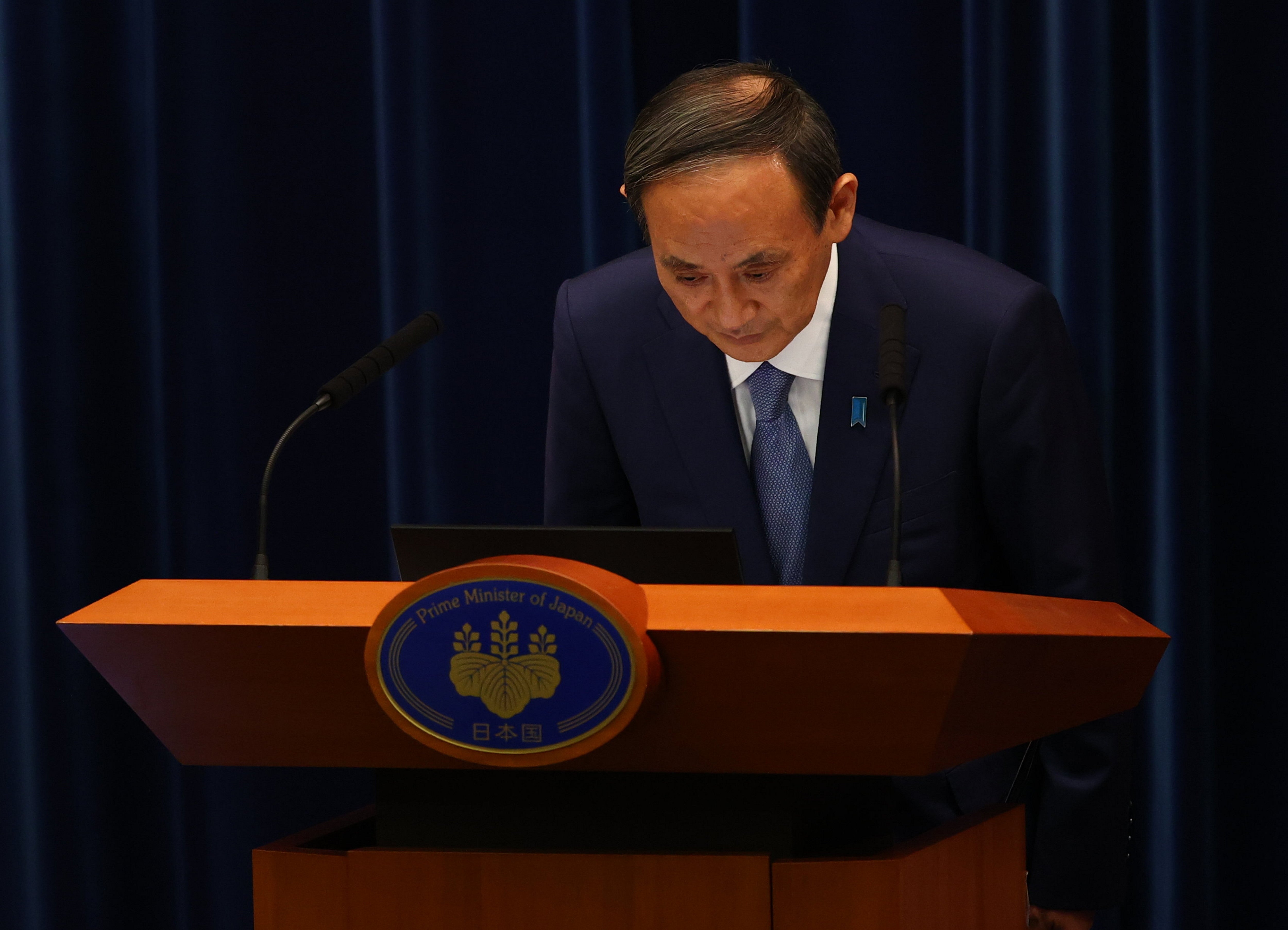Japan’s PM warns health system at risk of collapse as state of emergency is expanded
The health minister warned earlier that the country had entered an ‘extremely frightening’ stage of the pandemic

Japan’s prime minister has warned the country’s health system could collapse if Covid infections continue to spread at their current rate, as he extended and expanded a state of emergency.
Yoshihide Suga also issued new pre-emergency measures as daily Covid-19 infection rates climbed above 10,000 cases for the first time since the pandemic hit in early 2020.
“Infections are expanding in the Tokyo and western metropolitan areas at an enormous speed that we have never experienced before,” Suga said as he declared the expansion of the state of emergency.
He added that if the spike continues at the current pace with the spread of the more contagious delta variant, Japan’s medical system could collapse.
Health minister Norihisa Tamura warned earlier that the country had entered a new, “extremely frightening”, stage of the pandemic.
“I think that people cannot see ahead and, worrying how long this situation will last, they find it unbearable that they cannot return to normal daily life,” Reuters quoted him as saying.
State of emergency declarations that will run between August 2 and August 31 were made for three prefectures surrounding Tokyo, namely Saitama, Chiba, and Kanagawa, in addition to Osaka.
Further afield, Hokkaido, Ishikawa, Kyoto, Hyogo and Fukuoka prefectures declared pre-emergency measures between August 2 and August 31, reflecting growing concern that the pandemic may be spiralling out of control.
Meanwhile, the ongoing state of emergency declaration in Tokyo and Okinawa, which was due to end on August 21, will be extended to August 31.
With increasing infection rates, government and medical officials are concerned that the country’s healthcare system will be pushed ever closer to the brink: in Tokyo, for instance, 64 per cent of the city’s hospital beds allocated for Covid-19 cases are already occupied.
But the increased risk to available beds is not only in Tokyo. “The medical care system is on the brink of collapse in some areas,” Kanagawa Governor Yuji Kuroiwa said, according to The Asahi Shimbun. “The crisis should be fully recognised.”
For a second day running, Tokyo surpassed 3,000 new daily infections with 3,300 being recorded – an increase of 80.5 per cent more than the previous week’s daily average – but less than yesterday’s total, which was 3,865.
As the Delta variant continues to spread across Japan, young people, mostly unvaccinated, continue to be the main cause of concern.
Suga denies there is a link between the recent spike in cases in Tokyo and the Olympic Games being hosted by the city.
Earlier on Friday, Tokyo governor Yuriko Koike noted that people in their 30s or younger account for many recent cases and urged them to “share the sense of crisis” and follow basic measures such as wearing masks and avoiding having parties.
Of Tokyo cases, 1,208 were in their 20s; 725 were in their 30s; 515 were in their 40s; and 325 were in their 50s. Meanwhile, 275 cases were of people between 10 and 19, and 82 were over 65 years of age. Almost half of the new cases were under 40 years old.
Tokyo’s neighbours Kangawa and Chiba reported record case numbers for a third day running—at 1,418 and 753 cases, respectively.
Japan’s southernmost prefecture, Okinawa, recorded 382 new cases, which was 10 fewer cases than reported yesterday, but was a reminder that the pandemic has reached the length and breadth of the country.
The current vaccination rate for fully vaccinated over-18s in Japan is 27 per cent.
Under the state of emergency declarations, restaurants and bars are asked to reduce hours and refrain from serving alcohol. Pre-emergency measures, meanwhile, ask restaurants and bars not to serve alcohol.
However, calls for social distancing, staying at home and curtailing entertainment and dining are often ignored, especially among young people, leading to ever more infection rates across the country—and growing concern among officials.
Subscribe to Independent Premium to bookmark this article
Want to bookmark your favourite articles and stories to read or reference later? Start your Independent Premium subscription today.

Join our commenting forum
Join thought-provoking conversations, follow other Independent readers and see their replies